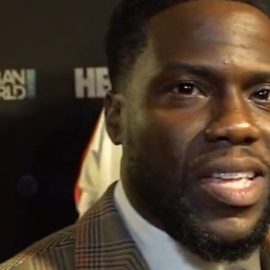

This article is an excerpt from the Shortform book guide to "A Promised Land" by Barack Obama. Shortform has the world's best summaries and analyses of books you should be reading.
Like this article? Sign up for a free trial here .
Who is Barack Obama’s mother? What was Barack Obama’s relationship with his mother like, and how did it influence him to go into politics?
Barack Obama’s mother, Ann, had a huge influence in young Barack Obama’s life. She resisted norms and encouraged him to think critically about the world around him, and to always have empathy.
Read more about Barack Obama, his mother, and how she shaped his life.
Who Is Barack Obama’s Mother?
The absence of any sort of father figure growing up brought Barack closer with the white, maternal side of his family—his mother, Ann; his half-sister, Maya; and his grandparents, Madelyn and Stanley Dunham (affectionately known by Barack for the rest of his life as “Toot” and “Gramps”). So who is Barack Obama’s mother and why was she so influential in his life?
Barack Obama Sr. abandoned the family and returned to Kenya when his son was still an infant. Apart from one month-long visit by the elder Obama to Hawaii when Barack was 10, the future president never knew his father outside of occasional letters (the contents of which revealed that father Obama knew next to nothing about his son).
While he was struggling to make sense of his biracial identity and find his place as a young Black man being raised within a white family, Barack’s outlook on the world began to take shape, thanks to the crucial influence of his mother, Ann.
Ann Dunham was an iconoclast who’d rebelled against convention as a teenager and young adult. A product of the 1960s counterculture, she refused to conform to how mid-century mainstream American society dictated that a young person—especially a young woman—ought to behave.
She traveled the world, married and remarried several times, and never quite settled into an established career. As a result, she was often financially dependent on her parents, well into adulthood and motherhood. Still, her headstrong personality, her cosmopolitanism, and her rebelliousness deeply shaped Barack’s outlook.
Shaping Barack’s Moral World
Although she was a free thinker and questioner of conventional wisdom, Ann maintained a clear, almost black-and-white sense of right and wrong. She was appalled by the racism she saw both at home in the U.S. and during her travels abroad, viewed the Vietnam War as an immoral disaster, and was outraged by the revelations of corruption and lawbreaking during the Watergate hearings in 1973-1974.
Ann practiced what she preached and instilled in young Barack the importance of empathy. When she found out that he’d been part of a group at school that was bullying a classmate, she sat her son down and told him that he had a choice to make. He could either be someone who thought about others as people, or someone who only saw others as objects to be manipulated and discarded for his own ends—the choice of which path he would take was entirely his. It was a lesson he would never forget.
An Intellectual Awakening
Although Barack was always described as intelligent by those who knew him during this time (or at least “smart-mouthed,” according to Gramps), he was unmotivated as a teenager. Hardly a star student and certainly no one’s idea of an overachiever, Barack’s favorite pastimes at this age were hanging out with friends, drinking beer, and smoking marijuana.
Although these were fairly typical experiences for a teenager growing up in the 1970s, they spoke to what Barack would later describe as a certain aimlessness during this period of his life. But during high school, literature began to stir an intellectual awakening within him. Barack Obama, prodded by his mother, who’d instilled in him a reading habit as a child, Barack began to dip his toes into the world of ideas and great thinkers. In his later high school years in Honolulu, he could frequently be seen devouring works by authors ranging from Langston Hughes to Ralph Waldo Ellison. It was still self-directed learning at this age. There was no system to how or what he read, nor did he fully understand the texts he was burning through. But he had discovered something far more valuable—a lifelong thirst for knowledge.
Barack Obama’s Mother: A Devastating Loss
But while Barack was embarking on his political career, his family life was about to absorb a devastating loss. In 1995, as he was making the preparations for his state Senate run, Barack learned that his mother, Ann, was terminally ill with uterine cancer.
She declined far quicker than the family or her doctors expected. When he visited her in Hawaii in September 1995, she had already advanced to stage 4 cancer and hardly had the strength to move or speak. But even in her weakened condition, Ann could still summon up the strength to encourage her son to fulfill the potential she had always seen—and nurtured—in him.
She brushed aside any idea that Barack should abandon the campaign to care for her. Barack put on a brave face for her, but wept for his impending loss and his mother’s suffering when he returned to his hotel room.
Sadly, this September 1995 visit would be the last time Barack would see Ann. She succumbed to her illness on November 9, 1995, mere months before the state Senate primary election. Not only was Barack grief-stricken, but he felt shame. He felt he had been so caught up in his own ambition for public office that he’d never had a proper chance to say goodbye to his mother.

———End of Preview———
Like what you just read? Read the rest of the world's best book summary and analysis of Barack Obama's "A Promised Land" at Shortform .
Here's what you'll find in our full A Promised Land summary :
- How Barack Obama went from relative obscurity to the first Black president
- What principles guided his political leadership style
- Why Obama retained an unshakable faith in the potential and promise of America






